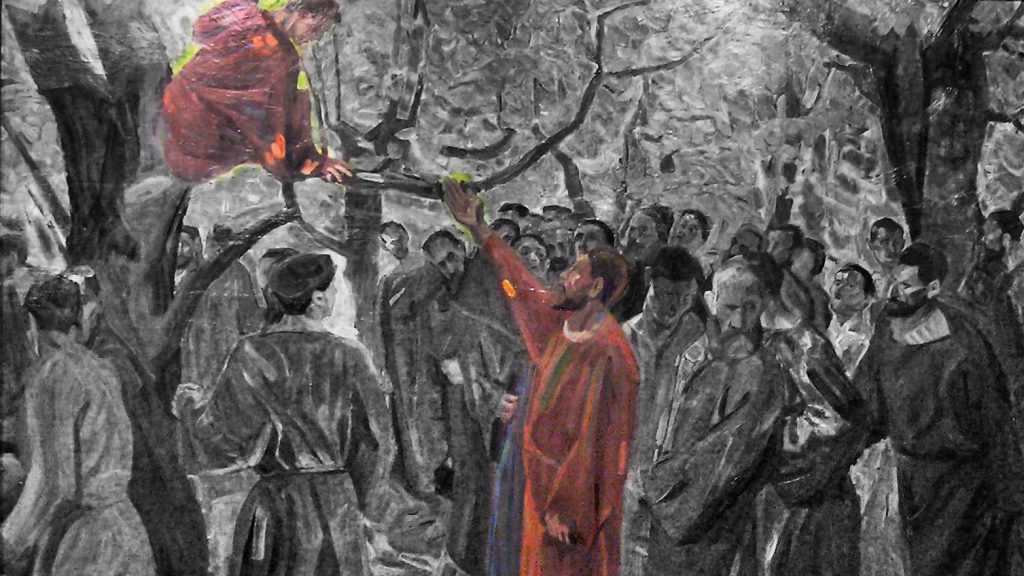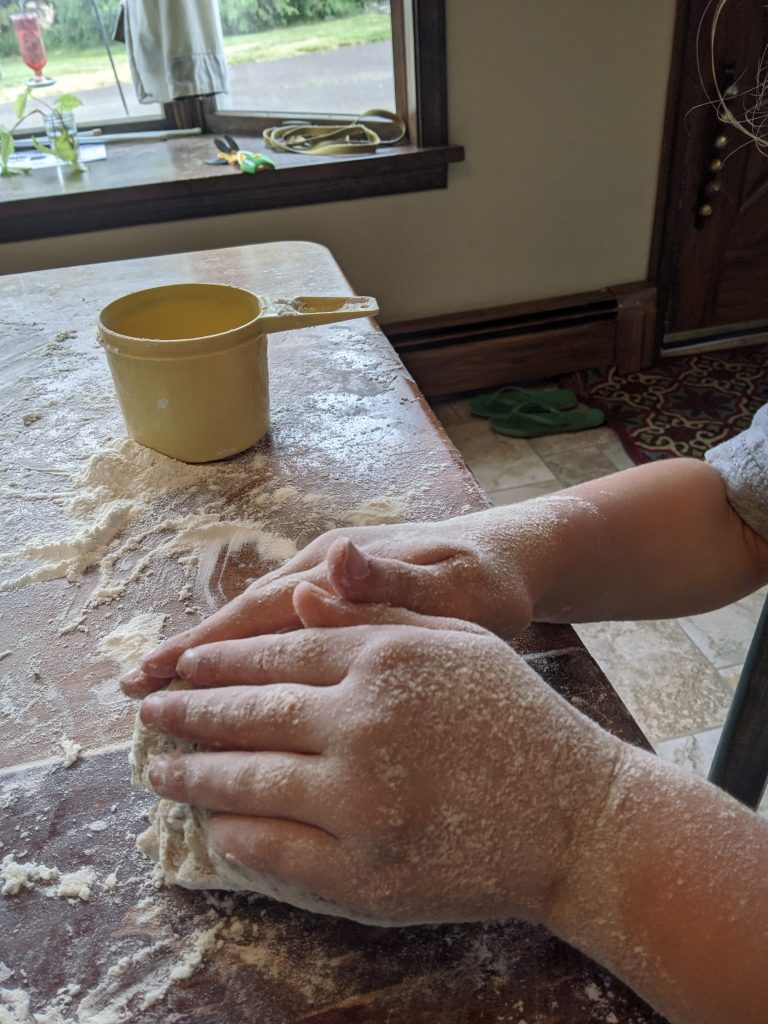Editor’s note: This post is a continuation of an article Marta Castillo wrote in February. To read part one, click here.

Zacchaeus was a wee little man
And a wee little man was he
He climbed up in a sycamore tree
For the Lord he wanted to see
And when the Savior passed that way
He looked up in the tree
And said, ‘Zacchaeus, you come down!
For I’m going to your house today!
What a fun little song to teach the young ones! To tell the whole story, we need to add another verse.
When Jesus went to Zaccheus’ house, Zaccheus was transformed.
And he said, I going to give half of my stuff to the poor.
And pay back times four to those who I have wronged.
And Jesus said, “Today salvation has come to this house.”
This is not singable, unfortunately. A musician/songwriter could help us out.
The call to salvation and transformation in the story of Zaccheus is a call to practice jubilee with our money. In his encounter with Jesus, Zaccheus realizes that he has a responsibility to the poor. He also realizes that he has a responsibility to pay back those that he has exploited through personal interactions and through the system.
In our language of today, Zaccheus gave half of his money to people who were poor and organizations that served people who were poor. He also paid reparations to those whom he had cheated or taken advantage of through personal transactions or through the unjust system of his time.

Today, in the US, this word, “reparations,” triggers all kinds of thoughts and feelings. In our pastors’ book study of Drew Hart’s book, “Who Will Be a Witness,” our group had an excellent but difficult conversation around economic justice – our history, church giving, generational wealth in white churches, large endowment funds, and investment accounts.
Hart writes in his book, “Zaccheus seems to provide a really powerful starting point for a theology of reparations in the church…Making amends and setting things right in broken relationships is at the heart of a Christian theology of reparations.”
I invite us to consider how we can creatively and faithfully be transformed spiritually and economically by reading the complete story of Zaccheus:
- Can we commit to give half of our money and offerings to the poor?
- Can we purposely, individually or as churches, give to organizations that are owned, led by, and serve communities of people of the global majority (also known as people of color)?
- Can we provide scholarships to students of color in our communities, through local organizations, or other congregations in the conference?
- Can we give to Mennonite Church USA Justice Fund to provide a way for individuals and congregations to support MC USA churches that are actively involved in dismantling racism, addressing police brutality, reimagining policing in our society, or combating poverty?
It made no financial sense for Zaccheus to give half of his money to the poor and to pay back four times to those who he had wronged. We do not know what happened to him after this story. We only know that he became a follower of Jesus, and he did not walk away sad, holding on to his wealth like the rich, young ruler.
Can we accept Jesus’ invitation to come in and dine with us, to repent, and allow God’s economics of jubilee transform our lives?













